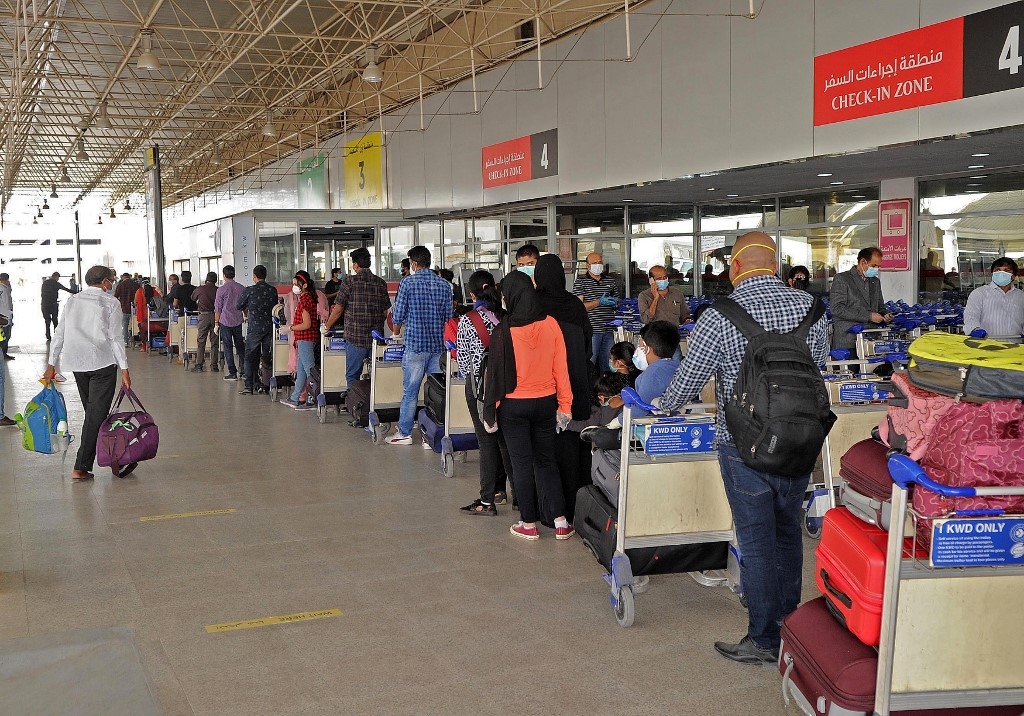Kuwait vows to slash migrant population amid economic woes

Kuwait has vowed to slash the number of migrants from 70 to 30 percent of the country's total population, as the Gulf state's prime minister vowed to "resolve the demographic imbalance".
Prime Minister Sabah Al-Khaled al Hamad al Sabah told a gathering of local newspaper editors on Wednesday that out of the country's 4.8 million inhabitants, 3.3 million are foreign nationals.
"The ideal demographic situation would be that Kuwaitis make up 70 percent of the population and non-Kuwaitis 30 percent," said Sabah.
"So we face a big challenge in the future to rectify this demographic imbalance."
Like other Gulf countries, Kuwait has a sizeable worker population that hail from other parts of the Middle East and South Asia.
Sabah did not specify how Kuwait intended to "rectify" the migrant population.
Last month, Middle East Eye revealed that thousands of undocumented workers were left stranded in squalid desert detention camps in the country amid the global coronavirus pandemic.
Footage sent to MEE showed conditions that left undocumented workers unable to properly socially distance or access clean washing facilities.
The undocumented workers were sent to the camps after surrendering themselves to local authorities in a promise of general amnesty.
Poor conditions and the death of some undocumented workers prompted some to hold a protest inside the camp. Kuwaiti security forces fired rubber bullets and tear gas to break up the protests.
Kuwait's state budgets have also been hit by tumbling oil prices sparked by the pandemic, pushing it to seek ways to provide more jobs to its own citizens.
State-owned Kuwait Airways said last week it would lay off 1,500 expatriate employees due to "significant difficulties" caused by coronavirus.
Middle East Eye delivers independent and unrivalled coverage and analysis of the Middle East, North Africa and beyond. To learn more about republishing this content and the associated fees, please fill out this form. More about MEE can be found here.




